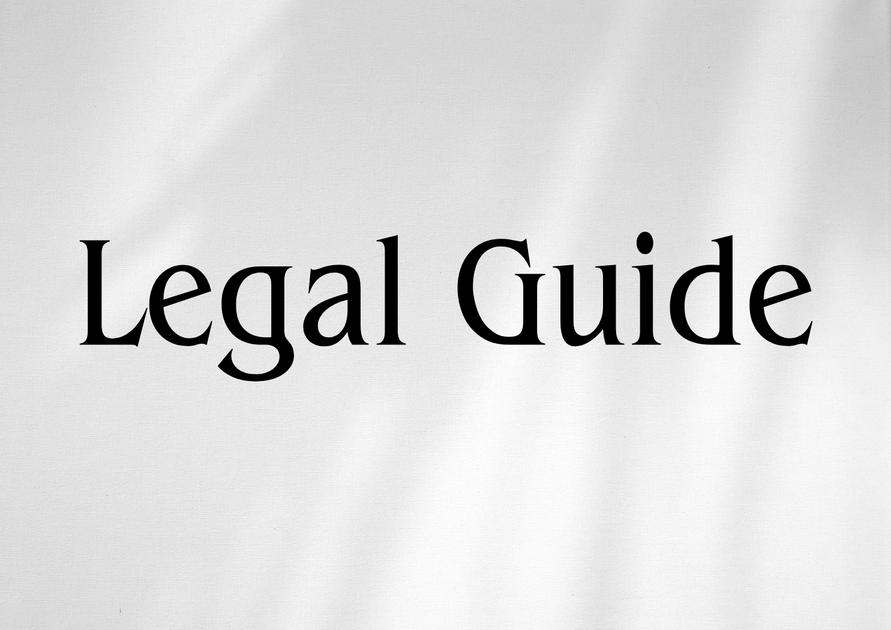Introduction
The rapid transformation of the United Arab Emirates (UAE) into a leading business and innovation hub has brought about an increasingly complex regulatory landscape. As entrepreneurs, multinational corporations, legal advisors, and HR managers navigate this environment, one of the most fundamental decisions involves choosing the correct license type for their operations. In particular, discerning between a professional license and a commercial license has become exceptionally relevant, especially in light of recent updates to UAE company laws, including Federal Decree-Law No. 32 of 2021 on Commercial Companies and ongoing ministerial guidance into 2025. Failure to choose, structure, or renew the right license exposes businesses to regulatory risks, financial penalties, and – in some cases – criminal liability. In this article, we provide a clear, comparative, and practical consultancy analysis on professional and commercial licenses: their legal bases, practical implications, obligations, and critical compliance strategies. We draw from recent official decrees, governmental guidance, and industry practice to empower UAE businesses to make informed, compliant decisions that underpin commercial success in the years ahead.
Table of Contents
- Legal Framework Governing Business Licenses in the UAE
- Understanding Professional and Commercial Licenses: Definitions and Scopes
- Regulatory Analysis: Key Legal Differences
- Recent Updates: UAE Law 2025 and Modern Licensing Practices
- Risks, Penalties, and Compliance Strategies
- Practical Case Studies and Hypotheticals
- Best Practices for UAE Business Licensing
- Conclusion: Shaping the Future of UAE Business Compliance
Legal Framework Governing Business Licenses in the UAE
Overview of Governing Laws and Authorities
Business licensing in the UAE is governed by a matrix of federal, local, and free zone laws. At the federal level, Federal Decree-Law No. 32 of 2021 on Commercial Companies (as amended, the “Companies Law”) sets the foundation for legal forms and permitted activities. The issuance, renewal, and regulation of licenses are also subject to:
- Cabinet Resolution No. 16 of 2020 on Organizing Business Licensing Procedures
- Ministerial Guidance and Updates from the UAE Ministry of Economy, Ministry of Justice, and Department of Economic Development (DED) of each Emirate
- Specialized regulations for free zones, such as the Dubai Multi Commodities Centre (DMCC) or Abu Dhabi Global Market (ADGM)
- Updates accessible via the UAE Government Portal
Crucially, these sources delineate not only the activities permissible under each license type, but also compliance, ownership, and structural obligations. Understanding these frameworks is essential to mitigate compliance risks and ensure business sustainability.
Key Licensing Types in the UAE
While numerous license types exist (including industrial and tourism), the overwhelming majority of UAE businesses require either:
- Professional License – for service-oriented, advisory, or intellectual activities conducted by qualified individuals or firms.
- Commercial License – for trading, buying, selling, or distribution of goods and commodities on a commercial basis.
Both license forms entail unique regulatory obligations, ownership requirements, and business structure considerations.
Understanding Professional and Commercial Licenses: Definitions and Scopes
Professional License Explained
A professional license authorizes individuals or entities to offer services dependent upon intellectual or specialized skills. Common activities include:
- Legal, consultancy, and audit services
- Medical, therapeutic, and clinical practice
- Architectural design, engineering consultancy, and related professional works
- IT, software design, and other creative or knowledge-based offerings
Professional licenses often require proving individual qualifications, accreditations from relevant authorities (such as the Ministry of Health or Ministry of Justice), and – in regulated sectors – additional professional indemnity insurance.
Commercial License Explained
A commercial license permits trading or commercial activities involving the purchase, sale, distribution, or import/export of goods. It is relevant for:
- Retail and wholesale businesses
- Real estate brokerage and commercial agencies
- Import/export houses and e-commerce enterprises
- General trading companies
These licenses are less personal in nature and typically require meeting capital requirements, registering trade names, and – in certain cases – proving proof of physical premises.
Summary Table: Professional vs. Commercial License Activities
| Criteria | Professional License | Commercial License |
|---|---|---|
| Core Activities | Services, consultancy, advisory, skilled professions | Trading, import/export, wholesale, commercial sales |
| Qualification Requirement | Professional certificates, degrees mandatory | Usually not required, except for regulated goods/sectors |
| Business Structure | May be sole proprietorship, civil company, or LLC (with foreign ownership possible for select activities after Law 32/2021) | LLC or Sole Establishment; foreign ownership subject to activity list and Emirate |
| Audit/Insurance Obligations | Often mandatory for regulated services | Applicable for certain commodity sectors or high-risk businesses |
| Example Sectors | Law, medicine, design, IT, consultancy | Retail, general trading, real estate, e-commerce |
Regulatory Analysis: Key Legal Differences
Legal Basis and Ownership Under UAE Law
The Companies Law and DED regulations outline clear distinctions between professional and commercial licensing, which impact business formation, foreign ownership, and liability. Notable regulatory foundations include:
- Federal Decree-Law No. 32 of 2021 (Companies Law): Restructured ownership rules, enabling up to 100% foreign ownership for designated activities, including some professional fields (subject to Cabinet and Emirate-level guidance).
- Cabinet Resolution No. 16 of 2020: Streamlined licensing procedures and listing requirements for both license types.
- Ministerial Circulars (2022-2024): Updated lists of activities eligible for professional licensing and foreign-owned commercial enterprises.
Comparative Table: Old Law vs. New Law Specifications (Post-2021)
| Criteria | Old Law (pre-2021) | New Law (2021 onwards) |
|---|---|---|
| Foreign Ownership (Professional License) | Mandatory local service agent, foreigner as sole proprietor/civil partner only | Up to 100% foreign ownership possible for approved activities (see Ministry of Economy list) |
| Foreign Ownership (Commercial License) | Mandatory 51% UAE national shareholding (LLC) | Up to 100% for Cabinet-approved activities, Emirate discretion applies |
| Main Licensing Authority | DED of respective Emirate, some authority for Chambers of Commerce | DED remains, streamlined via unified digital portals; enhanced role for free zone registrars |
| Renewal and Reporting | DLT and trade license annual renewal, sector-specific reporting (manual processes) | Digital platforms now allow streamlined renewals and reporting (e.g., Abu Dhabi’s TAMM, Dubai’s Invest in Dubai portal) |
Ownership and Structural Implications
Professional License:
Traditionally limited to UAE/foreign individuals and civil companies, with a local service agent required by law (generally not owning equity). Following the 2021 amendments, professionals in many sectors can establish 100% foreign-owned civil companies — subject to their activity being on the Ministry of Economy’s approved list (see UAE Government Portal). Free zones often allow full foreign ownership without a service agent.
Commercial License:
Previously required a UAE national holding 51% of shares (LLC). After legal reforms, full foreign ownership is expanding, but some activities remain restricted for Emiratis only (notably in insurance, banking, and oil/gas). Local commercial agency and sectoral approvals may still be necessary.
Operational Scope and Liability
Professional License Holders typically operate as personally liable professionals or partners (in a civil company), with liability extending to professional negligence, misconduct, or breach of sectoral laws (such as medical or legal malpractice).
Commercial License Holders generally limit personal liability via LLC structure — an important risk mitigation feature, especially in trading businesses with higher transactional risk.
Recent Updates: UAE Law 2025 and Modern Licensing Practices
Key Policy Shifts and Regulatory Modernization
The UAE’s journey towards a knowledge and compliance-driven economy has accelerated a raft of legislative and practice changes:
- Expansion of Eligible Activities for Full Foreign Ownership (2021-2025): Regular Ministry of Economy updates to approved activities for 100% foreign-owned enterprises, including some that straddle the professional-commercial divide (e.g., IT services involving hardware sale and support).
- Alignment of Federal and Emirate-Level Regulations: Enhanced cooperation between Ministry of Justice, DEDs, and free zones for unified standards on licensing processes and renewals.
- Increased Enforcement and Compliance Monitoring: Implementation of digital platforms for real-time license status verification and renewal reminders, as well as automatic imposition of late renewal penalties (see UAE Government Portal).
- New Penalties and Fines for Non-Compliance (2023-2025): Including administrative closure, fines of up to AED 100,000 for unlicensed or misclassified activities (referenced in Cabinet Resolution No. 16 of 2020 and local DED rules).
Process Flow Diagram Suggestion
Visual: Incorporate a process flow diagram illustrating the steps for obtaining, renewing, and upgrading a UAE professional versus commercial license, highlighting key compliance checkpoints (e.g., qualification submission for professional, capital verification for commercial).
Risks, Penalties, and Compliance Strategies
Common Risks Associated with Improper Licensing
1. Activity Misclassification: Obtaining a professional license for trading activities or vice versa can result in license suspension, business closure, or loss of right to operate. DEDs regularly conduct audits to verify activity compliance.
2. Ownership and Control Violations: Improper structuring (such as misrepresenting a local service agent or nominee shareholder) may attract penalties and potential criminal charges under the Companies Law.
3. Neglecting Renewal and Reporting: Failure to renew or update business details can result in late fees, suspension, and legal exposure under Cabinet and ministerial regulations.
Penalty Comparison Chart (2025 Local DED Guidance)
| Violation | Penalty Under Professional License | Penalty Under Commercial License |
|---|---|---|
| Practicing Unlicensed Activity | AED 50,000–100,000; business closure | AED 50,000–100,000; business closure |
| Non-Compliance with Reporting/Renewal | AED 5,000–20,000 (AED 500 per overdue month, up to closure) | AED 5,000–20,000 (similar enforcement) |
| False Reporting or Activity Misclassification | License revocation; criminal liability possible under Companies Law | License revocation; criminal liability possible |
Compliance Strategies for UAE Businesses
Professional legal consultancies strongly recommend the following steps for risk mitigation under current and upcoming UAE regulatory frameworks:
- Engage licensed legal and business formation advisors to assess intended business activities against official DED/Ministry of Economy lists.
- Conduct a pre-application audit to identify necessary qualifications, sectoral approvals, and insurance obligations (especially for professional license applicants).
- Utilize official digital platforms for license renewal and reporting, maintaining accurate documentation for possible DED audits.
- Deploy an internal compliance checklist. Visual: Suggest a downloadable compliance checklist PDF or embedded infographic with quarterly action points.
- Stay informed of all regulatory changes, particularly activity-specific amendments and Emirate-based rules that may affect ownership and operations.
Practical Case Studies and Hypotheticals
Case Study 1: Management Consulting LLC
Background: A US-based professional with an MBA seeks to offer management consulting in Dubai.
Analysis: Under the updated Companies Law and DED guidance, she can establish a 100% foreign-owned civil company, provided qualifications are duly attested. No local service agent is required, but proof of credentials is essential. Failing to demonstrate appropriate qualifications could result in license rejection or, if discovered post-issuance, penalties and operation suspension.
Case Study 2: E-Commerce Business with Physical Product Sales
Background: An entrepreneur wishes to operate an online marketplace selling electronics and offer tech support.
Legal Note: The
trading/retail (electronics) aspect mandates a commercial license. However, provision of tech support is a professional activity.
Best Practice: Register a commercial license for trading, with ancillary professional activities included if DED permits. Misclassifying the primary activity risks license suspension.
Hypothetical 3: Medical Practitioner in Abu Dhabi
Scenario: A non-UAE national doctor intends to open a private clinic.
Legal Insights: Requires a professional license from the Abu Dhabi Department of Health, attested medical degrees, and compliance with Federal Law No. 5 of 2019 on Medical Liability. Incorporating as a civil company allows professional operation, but sole proprietorship requires a local service agent under certain circumstances.
Best Practices for UAE Business Licensing
Given the dynamism of the UAE legal landscape, businesses and professionals are advised to:
- Review intended business activities annually and cross-reference with the DED/Ministry of Economy lists to ensure ongoing compliance.
- Align ownership structures with updated laws, anticipating further liberalization or new Emirate-level restrictions.
- Invest in regular training for compliance officers to stay abreast of regulatory changes.
- Seek specialized advice for mixed-activity businesses that may straddle both license types (for example, firms offering both products and consultancy services).
Conclusion: Shaping the Future of UAE Business Compliance
The evolution of UAE business licensing, particularly the distinction between professional and commercial licenses, reflects the nation’s commitment to nurturing a flexible, transparent, and globally integrated business environment. While regulatory updates (such as those stemming from Federal Decree-Law No. 32 of 2021 and recent Cabinet Resolutions) create immense opportunity for innovation and new market entrants, they also raise the bar for legal and operational compliance. Businesses must invest in proactive licensing strategy, ongoing consultancy, and robust compliance frameworks to safeguard their operations and capitalize on the UAE’s status as a premier commercial destination. Regular engagement with legal specialists, digital monitoring of regulatory updates, and a culture of compliance will remain the cornerstones of business success – ensuring readiness for whatever challenges and opportunities the next phase of the UAE’s economic growth will bring.




